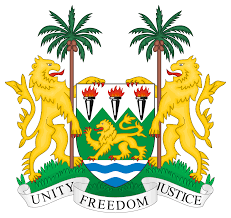Prohibition of Child Marriage Act 2024
Overview of recently enacted landmark legislation prohibiting child marriage
The Prohibition of Child Marriage Act 2024 is a significant legislative measure aimed at addressing the issue of child marriage in Sierra Leone. This Act is structured into seven key parts, each outlining specific provisions and objectives intended to eradicate child marriage and protect the rights of children in the country. Below is a summary of the key provisions and objectives of this Act.
Part I: Preliminary
This section provides definitions and interpretations of crucial terms used throughout the Act. Key terms such as "child," "child marriage," and "cohabitation" are defined to ensure clarity in the law's application. A "child" is defined as any person under the age of 18, and "child marriage" refers to any union where either or both parties are children. This part sets the foundational understanding necessary for enforcing the Act's provisions.
Part II: Prohibition of Child Marriage
Part II is the core of the Act, establishing the absolute prohibition of child marriage in Sierra Leone. The key provisions include:
Prohibition of Marriage with a Child: It is illegal for any person to marry a child. Violators are subject to a minimum of 15 years imprisonment or a fine of at least Le. 50,000, or both.
Consent to Child Marriage: Parents, guardians, or any person in charge of a child cannot consent to a child's marriage. If a child is found married, it is presumed that the responsible adults consented or failed to prevent it, making them liable to similar penalties.
Use of Force or Ill-treatment: The Act criminalizes using force, duress, deceit, or neglect to compel a child into marriage or betrothal, with severe penalties attached.
Conducting or Promoting Child Marriage: Anyone who conducts or promotes a child marriage, attends such a marriage, or conspires to arrange one is also subject to stringent penalties.
Part III: Prohibition of Cohabitation with a Child
This part extends the prohibition to cohabitation, treating it as seriously as child marriage itself. The provisions include:
Prohibition of Cohabitation: It is illegal for anyone to cohabit with a child, and for parents or guardians to permit such cohabitation. Violators face imprisonment or hefty fines.
Attempts and Conspiracy: Attempting to cohabit with a child or conspiring to cause such cohabitation is also criminalized, with significant penalties to deter such actions.
Part IV: Annulment of Child Marriage
This section deals with the legal nullification of child marriages:
Void Child Marriages: Any child marriage contracted after the enactment of this law is automatically void.
Petition for Annulment: Those who were children at the time of their marriage can petition for annulment. The Act also provides for the annulment of marriages contracted before the law came into effect.
Part V: Compensation
This part outlines the provisions for compensating victims of child marriage:
Compensation for the Child Contracting Party: The adult involved in the child marriage may be ordered to pay compensation, taking into account the child's needs, lifestyle during the marriage, and the adult's financial capacity.
Compensation for Children Born of Child Marriage: The court can make orders concerning the custody, access, and compensation for children born from such marriages, ensuring their welfare is prioritized.
Legitimacy of Children: Despite the annulment of a child marriage, children born from such unions are deemed legitimate for all purposes.
Part VI: Protection for Victims of Child Marriage
This section provides protective measures for children:
Injunctions: The court can issue injunctions to prevent a child marriage from being solemnized, involving all parties who might facilitate the marriage.
Duties of the Ministry and Child Marriage Prohibition Officers: The Ministry of Gender and Children's Affairs is tasked with leading policy formulation, resource mobilization, and advocacy efforts. Child Marriage Prohibition Officers are appointed to prevent child marriages, gather evidence for prosecution, and raise community awareness.
Part VII: Miscellaneous Provisions
The final part of the Act includes:
Power to Make Rules: The Minister responsible for Gender and Children's Affairs is empowered to make rules necessary for the implementation of the Act.
Consequential Amendments: Several existing laws, including the Customary Marriage and Divorce Act, the Child Rights Act, the Christian Marriage Act, the Muslim Marriage Act, and the Civil Marriage Act, are amended to align with the new legal framework established by this Act.
Objectives of the Act
The overarching objective of the Prohibition of Child Marriage Act 2024 is to completely eradicate child marriage in Sierra Leone and ensure the protection of children from exploitation and abuse. By criminalizing all forms of child marriage and related practices, the Act aims to safeguard children's rights and promote their well-being. It also seeks to ensure that children born from child marriages are provided for, both in terms of their legitimacy and their financial and emotional needs. The Act also emphasizes the role of government institutions, local authorities, and communities in preventing child marriages and protecting vulnerable children.
The Prohibition of Child Marriage Act 2024 is a comprehensive legal framework designed to protect children in Sierra Leone from the harmful practice of child marriage. Through its rigorous prohibitions, penalties, and protective measures, the Act represents a significant step towards ensuring that all children in Sierra Leone can grow up free from the threat of early marriage and its associated harms.
The legal community in Sierra Leone can now use eBrief Ready free of charge to collaborate on and prepare matters for court, annotate case law and legislation and prepare court bundles electronically. You can create a free account here.



